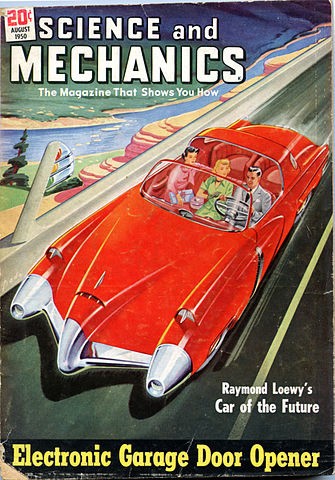Worldcon 74: Futurism vs. SF

What does the future hold? What will life be like ten years from now, fifty years? What will we have become? How will we view such concepts as religion, race, and gender? Will the gender binary have collapsed completely? If so, how will companies sell washing powder?
These are the sort of questions that futurists are asked (and yes, that last one is the focus of an actual Proctor & Gamble report, we are assured). Moderator S. B. Divya chaired a group of science fiction writers and professional futurists (Karl Schroeder, Andrea Philips, and David Brin) as they discussed the difference between the two disciplines, and gave some revealing insights into the world of the professional futurist.

Futurists are generally hired by government agencies and private corporations. Interestingly, the former tend to be easier to work with, as they’re looking for sweeping, pig-picture trends. Private businesses tend to be rather more tightly focused, less interested in the process of blue-skying. And while science fiction can certainly be a useful tool in filling out a coherent futurist image, it tends to fall outside of futurism’s purview in the strictest sense. This is because futurism tends to be about first and second order effects. Science fiction, particularly when done well, tends to dig into the third and fourth orders — that is, the effects of the effects.
Here’s an example: take a moment and check out the Breadface Instagram account. It won’t take you long to catch on to the general theme: a lady mooshes her face against a piece of bread, and posts the video to the internet. That’s it. That’s all there is to it. And yet, this woman has almost ninety thousand followers.
Now, think about this for a moment: when the folks at ARPA were creating the first germs of what eventually became the Internet, what could they have envisioned for its future? Probably at least the original plan of a network linking government, scientific, and academic facilities. Possibly a few might have entertained the idea of it spreading to widespread civilian use, and a world where everyone has their own personal soapbox, broadcasting to the world. But they would not, could not, ever have come up with Breadface. Or cat memes. Or any of the other oddball uses to which we put modern technology. Advances in technology may be (to a degree, at least) predictable, but the human uses thereof are emergent — unpredictable as anything.
And that’s where science fiction comes in. As one panelist put it, sci-fi doesn’t predict the car, it predicts the traffic jam. Sci-fi uses futurism as a jumping-off point to think about human behavior in a world that is manifestly different from our own. Not only that, but like futurism it can be used to shape or even outright change the future. There’s the concept of the self-fulfilling prophecy, which subtly steers a culture in a particular direction. Then there’s the lesser-known twin of the self-preventing prophecy. Think here of cautionary tales, such as Dr. Strangelove and 1984. They make a sufficiently serious cultural imprint upon us to make sure they never quite come true (well, at least not so far).
Unsurprisingly, the futurists interviewed expressed the feeling of an ethical burden in the futures they presented. In futurism as in fiction, it is felt important to balance optimism and pessimism, providing a realistic spread of possibilities. All-positive works are just as potentially harmful as all-negative. Some panelists felt that the current apocalyptic trend in young adult literature was a sign of the pendulum swinging too far toward pessimism. There is always the question of balancing the reality one sees coming against the ones they feel can or should happen instead, and this clearly weighs heavily on the panelists’ minds.
If there is one overriding theme in both, it is that technology changes, but basic human nature does not. Futurism is the study of anticipation, but sooner or later anticipation fails. When that happens, resilience steps up. Human beings are consistently at their best in the moments when the future takes us by surprise. Studies have shown that, if they know that their own families are safe, people will run toward dangerous situations to help. Mr. Brin stated that when he talks to government officials, he tells them again and again that they need to incentivize empowerment, giving people the power to act on those crucial moments when anticipation fails.

Futurism and sci-fi are risky propositions: the future is fluid, and filled with ever-changing variables. “Always in motion is the future,” as a certain Jedi master once said. But given what we know about the human race, we can still be reasonably sure that, in spite of it all, there will be one.
For more coverage on Worldcon, check out this link for articles and interviews.
Kelly Luck is interested in the future, for that is where she is going to spend the rest of her life. Her other SciFi4Me work can be read here.
![]()




